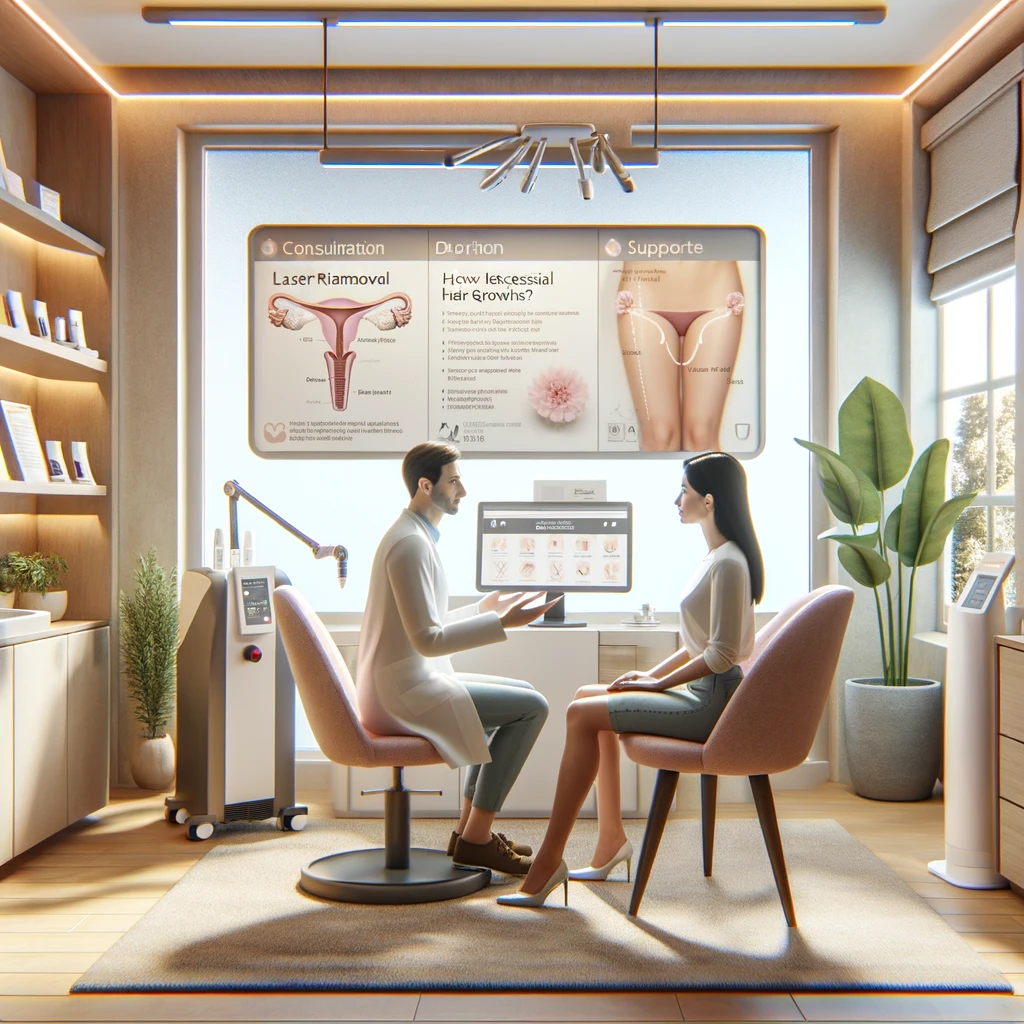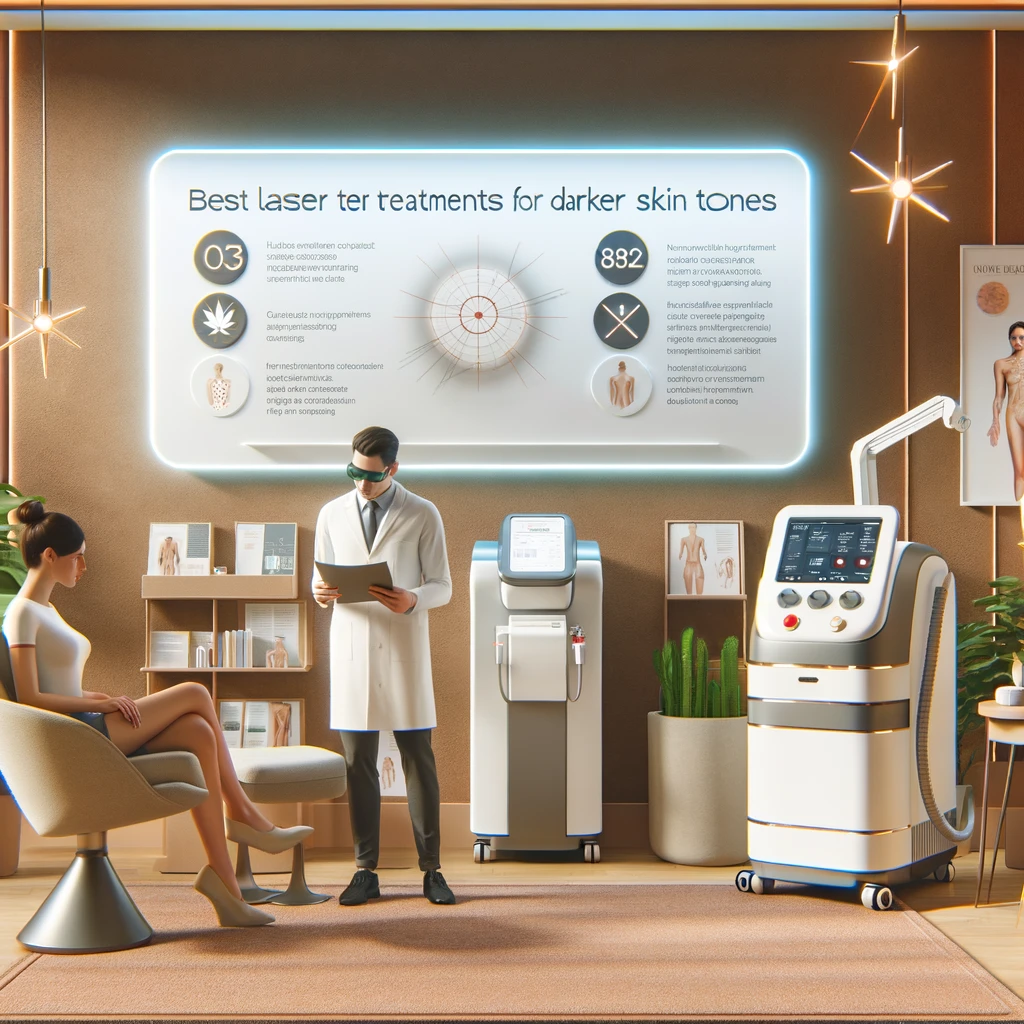Sarah struggled with the hallmark symptoms of Polycystic Ovary Syndrome (PCOS): irregular cycles, acne, and most visibly, the excessive and often dark hair growth on her face and body. She felt self-conscious, and the constant battle against unwanted hair consumed time and energy. Could laser hair removal be more than a cosmetic solution for her?
Excess hair growth, known as hirsutism, is a common and distressing symptom of PCOS, a hormonal disorder affecting women of reproductive age. While PCOS has no cure, managing its symptoms can make a significant impact on quality of life. This article explores how laser hair removal fits into this management and its potential benefits.
PCOS and Hair Growth: The Hormonal Connection
PCOS often leads to an excess of androgens (“male” hormones) in women. These elevated hormone levels can stimulate hair follicles, causing them to produce thicker, darker, and faster-growing hairs in areas typically associated with male hair patterns (face, chest, back).
Traditional hair removal methods like shaving, waxing, and plucking only provide temporary solutions and can further exacerbate skin irritation or darkening, especially for women with PCOS. Laser hair removal offers a different approach.
How Laser Hair Removal Can Help with PCOS:
- Long-Lasting Reduction: While not entirely permanent, laser hair removal can dramatically reduce the amount and thickness of hair regrowth over time. This can be especially beneficial for PCOS-related hirsutism.
- Potential for Improved Self-Esteem: Many women with PCOS find the reduction in unwanted hair leads to a boost in confidence and a positive shift in how they view themselves.
- Less Irritation: As hair growth decreases, the constant irritation caused by shaving, waxing, and plucking often lessens, which can be a major relief for sensitive skin.
- Focus on Management, Not Cure: It’s important to remember that laser hair removal cannot cure PCOS itself. It’s a powerful tool for managing one of the most visible and distressing symptoms of the condition.
Factors Influencing Laser Hair Removal Success for PCOS:
- Hormonal Fluctuations: The underlying hormonal imbalances of PCOS can lead to the growth of new hairs. While laser effectively targets existing hair follicles, ongoing hormonal changes may require occasional maintenance treatments.
- Hair and Skin Type: Generally, thicker and darker hair on lighter skin tends to respond best to laser treatments. Your suitability will be assessed during a professional consultation.
- Individual Response: How each person reacts to laser hair removal varies. Some women with PCOS experience a more dramatic reduction than others. Open communication with your technician is vital for tailoring treatment plans.
Maximizing Benefits: What to Consider
- Professional Treatment: Choose a reputable clinic specializing in laser hair removal with experience treating women with PCOS. Expertise in skin of color, if applicable, is also a crucial factor.
- Combined Approach: Laser hair removal works best alongside ongoing management of PCOS under the guidance of your doctor. This may include medications to regulate hormones and address other symptoms.
- Realistic Expectations: It takes multiple laser sessions for optimal results, and some maintenance may be needed long-term. Laser provides significant reduction, not necessarily 100% elimination.
Additional Considerations:
- Cost: While ultimately an investment, the initial cost of laser hair removal can be a factor to consider.
- Temporary Sensitivity: Skin can be sensitive after treatments. Meticulous sun protection and gentle skincare are vital post-treatment to minimize any irritation.
Laser Hair Removal and PCOS: A Path to Confidence
Excess hair growth from PCOS can be more than a cosmetic concern – it can deeply affect a woman’s self-image. Laser hair removal offers a valuable way to take control by reducing hair growth, lessening the need for frequent upkeep, and improving the appearance of the skin.
While it’s not a cure for PCOS, laser hair removal can be a transformative tool when integrated into a comprehensive management plan. If you’re struggling with PCOS-related hirsutism, consulting both your doctor and a qualified laser technician can bring you closer to your goal of smoother, healthier-looking skin and renewed confidence.









Leave a comment